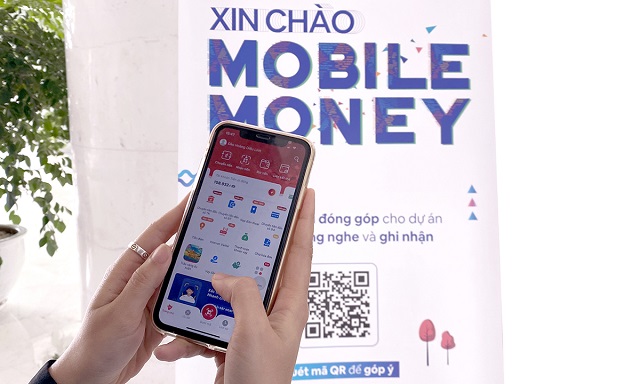Gov't likely to kick start Mobile Money this month
The service would go through a nationwide pilot implementation phase for two years.
The State Bank of Vietnam (SBV), the Ministry of Information and Communications, and the Ministry of Public Security are expected to agree for mobile carriers to carry out the Mobile Money service in October.
| Mobile Money is seen as a key measure to promote non-cash payments in Vietnam. Photo: Viet Dung |
SBV Vice Governor Dao Minh Tu gave the information at a monthly government press conference, noting the three mobile carriers are applying for the implementation of Mobile Money, the country’s direct carrier billing service, are Viettel, VNPT, and Mobifone.
According to Tu, Mobile Money is regulated by up to three ministries because this is a complicated service with strict requirements on security for customers and also the payment system.
“Mobile Money is a form of non-cash payment via mobile phone, so convenience is a plus point, but also requires utmost security to avoid being exploited for illegal use,” Tu suggested.
Tu noted the Government initially expected to pilot the service in certain provinces/cities, but has now opted for a nationwide scale in two years.
“After the pilot period, the Government would review the process for official use later on,” he continued.
In March 2021, the prime minister approved the pilot implementation of Mobile Money services, which allows people to transfer money through cellphone accounts instead of a bank account. The transaction limit is set at VND10 million (US$428.9) per month.
To date, Viettel, VinaPhone, and Mobifone have received licenses from the SBV to provide intermediary payment services, seen as the condition for them to take part in the Mobile Money pilot program.
The Ministry of Information and Communications (MIC) has suggested the pilot implementation of Mobile Money would help expand e-payment services to 100% of the population and boost economic growth by 0.5 percentage points.
To achieve the goal of becoming a cashless society, the government targeted to reduce cash payments from 11.3% in 2019 to less than 10% by the end of this year, and 8% by 2025.












